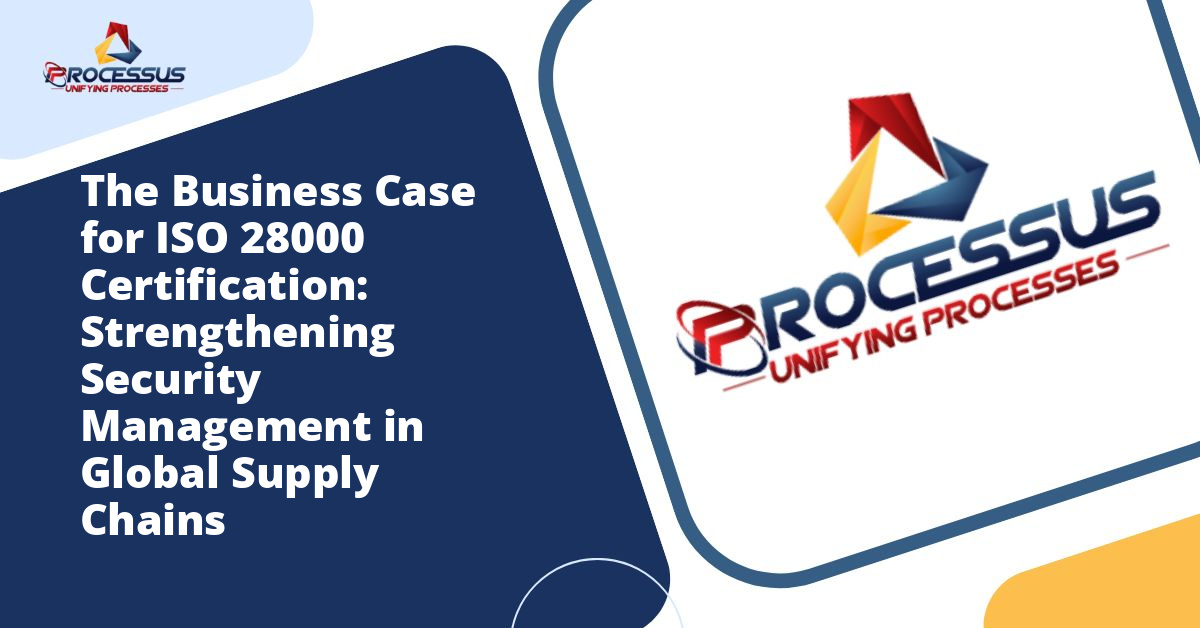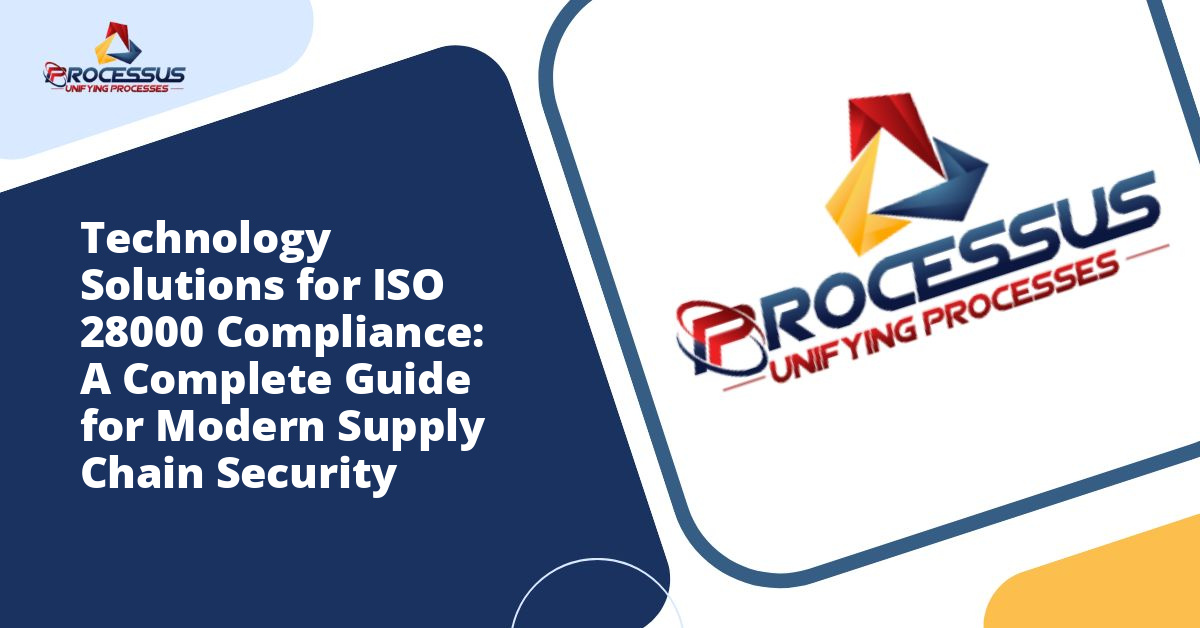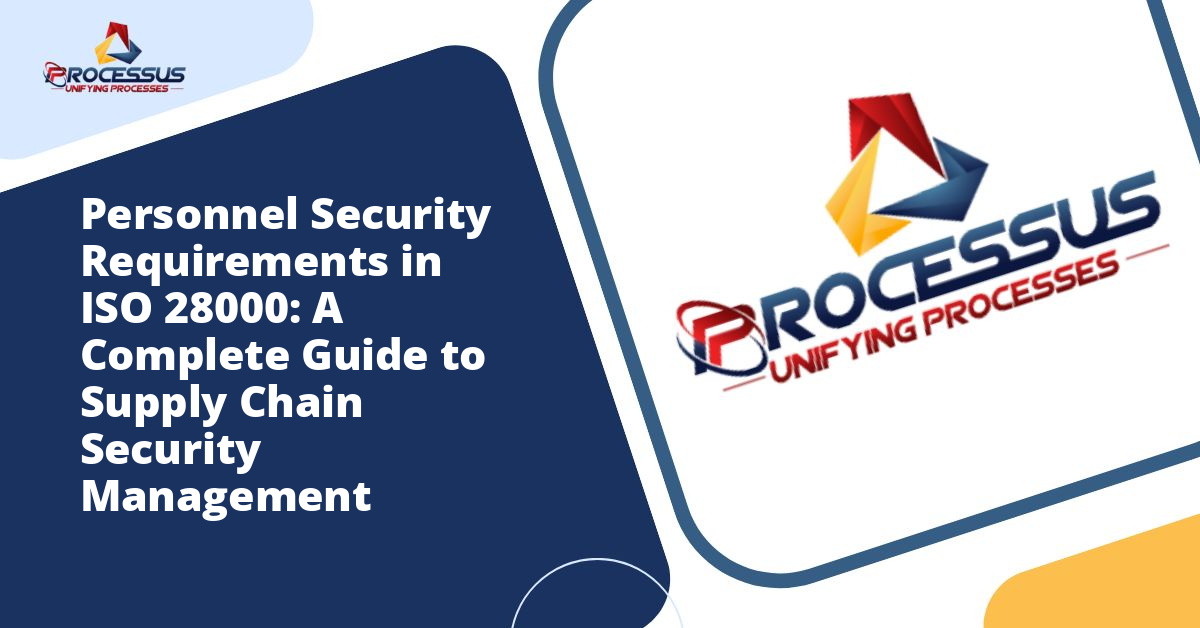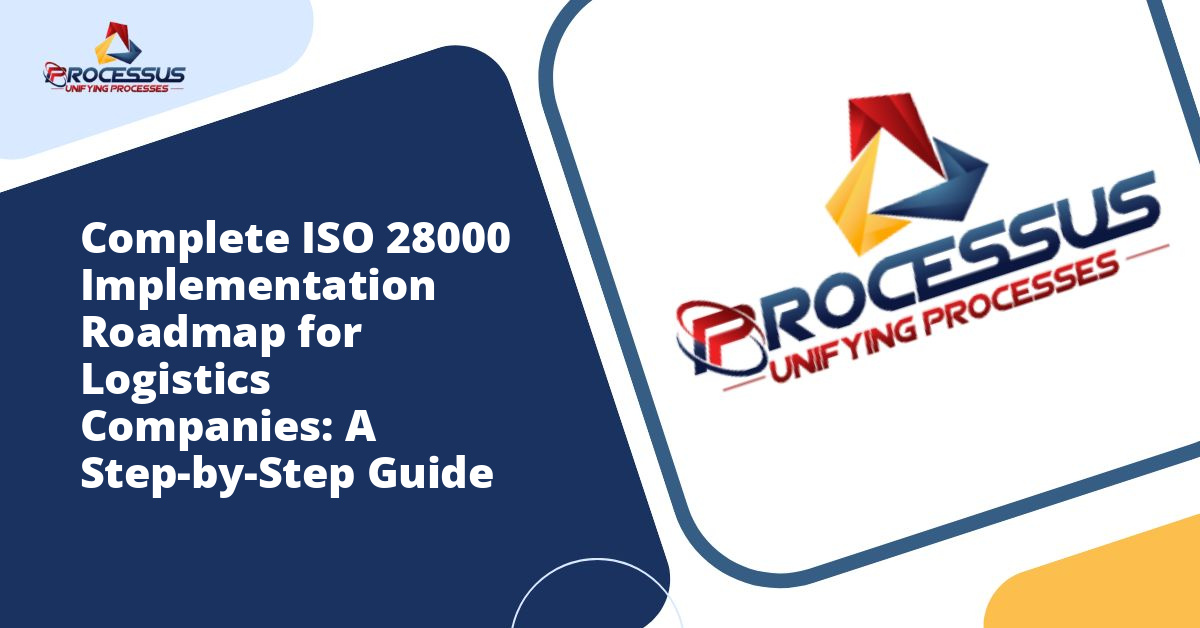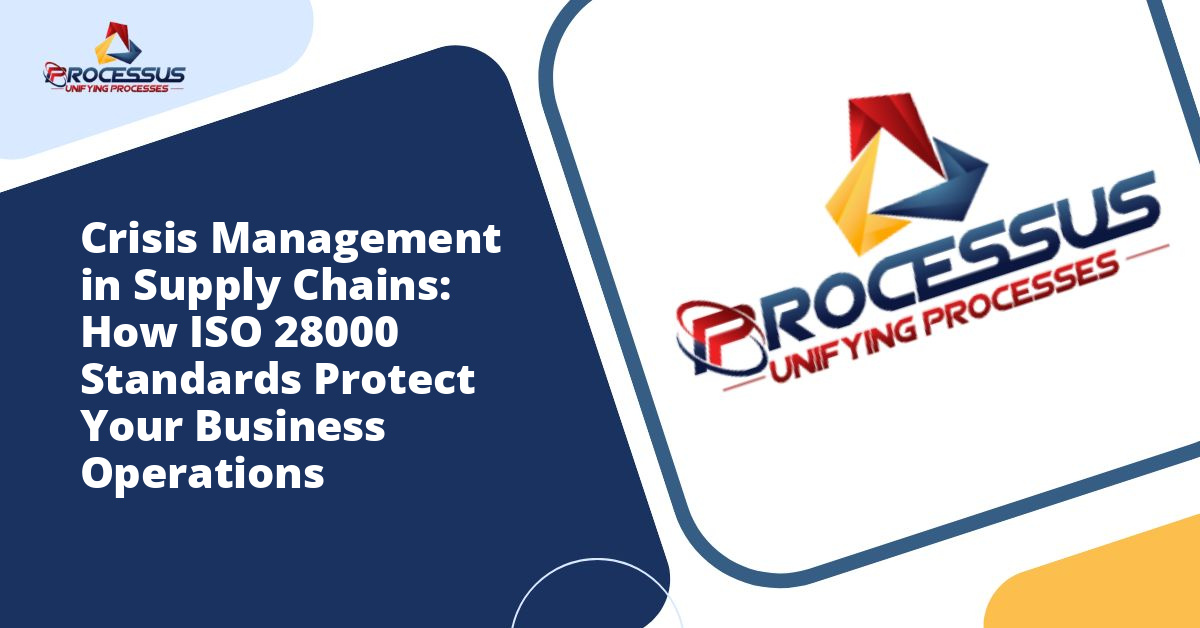In an increasingly interconnected global marketplace, supply chain security has become a critical concern for businesses across all industries. Organizations face mounting pressure to protect their operations from a wide range of threats, including terrorism, piracy, theft, and cargo tampering. The ISO 28000 standard provides a comprehensive framework for managing security risks throughout the supply chain, offering businesses a systematic approach to safeguarding their assets, personnel, and reputation.
This article explores the compelling business case for ISO 28000 certification, examining how this internationally recognized standard can transform security management practices while delivering tangible benefits to organizations of all sizes. From enhanced risk mitigation to improved competitive positioning, we will delve into the multifaceted advantages that make ISO 28000 certification a strategic investment rather than merely a compliance exercise. You might also enjoy reading about Protecting Your Supply Chain: Why ISO 28000 Certification Matters for Modern Businesses.
Understanding ISO 28000: A Foundation for Supply Chain Security
ISO 28000 is an international standard developed by the International Organization for Standardization (ISO) that specifies the requirements for a security management system in the supply chain. Published initially in 2007 and updated in subsequent years, this standard provides organizations with a structured methodology for identifying, assessing, and managing security threats that could impact their supply chain operations. You might also enjoy reading about ISO 28000 for E-Commerce: Securing Modern Supply Chains in the Digital Age.
The standard applies to organizations of all types and sizes, regardless of whether they operate at one point or multiple points in the supply chain. This includes manufacturers, importers, exporters, transporters, warehouses, and distribution centers. The flexibility of ISO 28000 allows it to integrate seamlessly with other management systems, including ISO 9001 for quality management and ISO 14001 for environmental management. You might also enjoy reading about Transport Security Under ISO 28000: Best Practices for Supply Chain Protection.
At its core, ISO 28000 establishes a risk-based approach to security management. Rather than prescribing specific security measures, the standard requires organizations to assess their unique security threats and vulnerabilities, then implement appropriate controls to address these risks. This flexibility ensures that security measures are proportionate, cost-effective, and aligned with the specific challenges faced by each organization.
The Growing Imperative for Supply Chain Security
Before examining the specific benefits of ISO 28000 certification, it is essential to understand the evolving landscape of supply chain security threats that make this standard increasingly relevant for modern businesses.
Rising Security Threats
Global supply chains face an expanding array of security challenges. Cargo theft costs businesses billions of dollars annually, with sophisticated criminal networks targeting high-value goods in transit. Counterfeit products infiltrate supply chains, damaging brand reputation and potentially endangering consumers. Cyberattacks on logistics systems can disrupt operations and compromise sensitive data. Furthermore, geopolitical instability creates security concerns in various regions, affecting international trade routes and operations.
Regulatory Pressure and Customer Expectations
Governments worldwide have implemented stringent security regulations for supply chain operations, particularly following heightened concerns about international terrorism. Customs authorities require detailed security documentation and may impose penalties or delays on non-compliant shipments. Simultaneously, customers and business partners increasingly demand evidence of robust security practices, viewing supply chain security as a prerequisite for doing business rather than a differentiating factor.
The Cost of Security Failures
Organizations that experience security breaches in their supply chains face significant financial and reputational consequences. Direct costs include stolen inventory, damaged goods, and regulatory fines. Indirect costs encompass business interruption, increased insurance premiums, customer defection, and lasting damage to brand reputation. In some cases, a single security incident can threaten the viability of an entire business.
Financial Benefits of ISO 28000 Certification
Implementing ISO 28000 requires investment in assessment, documentation, training, and potential infrastructure improvements. However, the financial returns from certification typically far exceed these initial costs through multiple mechanisms.
Reduced Security-Related Losses
The systematic approach to security risk management mandated by ISO 28000 helps organizations identify vulnerabilities before they are exploited. By implementing appropriate preventive measures, companies can substantially reduce losses from theft, damage, and tampering. Organizations that have achieved ISO 28000 certification commonly report measurable decreases in security incidents, translating directly to improved profitability.
Lower Insurance Premiums
Insurance providers recognize that ISO 28000 certified organizations pose lower risks than their non-certified counterparts. Many insurers offer reduced premiums or more favorable terms to certified companies, acknowledging that their structured approach to security management reduces the likelihood of claims. Over time, these insurance savings can offset a substantial portion of the certification investment.
Decreased Inspection Delays and Customs Clearance Times
Customs authorities in numerous countries grant preferential treatment to companies with recognized security certifications. ISO 28000 certified organizations often experience faster customs clearance, fewer inspections, and streamlined documentation requirements. For businesses engaged in international trade, these operational efficiencies translate to faster delivery times, reduced warehousing costs, and improved cash flow.
Operational Efficiency Improvements
The process of implementing ISO 28000 requires organizations to map their supply chain processes comprehensively, identify inefficiencies, and establish clear procedures. This systematic analysis frequently reveals opportunities for optimization beyond security considerations. Companies report improvements in inventory management, resource allocation, and overall operational coordination as byproducts of the certification process.
Competitive Advantages in the Marketplace
Beyond direct financial benefits, ISO 28000 certification provides strategic advantages that strengthen competitive positioning and create opportunities for business growth.
Enhanced Customer Confidence and Trust
In industries where security is paramount, ISO 28000 certification serves as a powerful trust signal to existing and prospective customers. The certification demonstrates that an organization has implemented internationally recognized best practices for security management, independently verified by accredited auditors. This third-party validation carries more weight than unverified security claims, helping businesses build stronger relationships with security-conscious customers.
Access to New Markets and Partnerships
Many large corporations now require their suppliers and logistics partners to hold ISO 28000 certification or equivalent security credentials. Without certification, businesses may find themselves excluded from lucrative contracts or partnership opportunities. Conversely, certified organizations can access markets and clients that demand rigorous security standards, expanding their potential customer base and revenue streams.
Differentiation from Competitors
In crowded markets where products and services are increasingly commoditized, ISO 28000 certification provides meaningful differentiation. Organizations can leverage their certification in marketing materials, proposals, and customer presentations to distinguish themselves from competitors who lack similar credentials. This differentiation can justify premium pricing and strengthen brand positioning.
Improved Supplier and Partner Relationships
ISO 28000 certification demonstrates commitment to security best practices throughout the supply chain, fostering trust with suppliers, distributors, and logistics partners. This enhanced trust facilitates smoother collaboration, more transparent information sharing, and stronger long-term relationships. Partners are more willing to integrate their systems and processes with certified organizations, creating more resilient and efficient supply chains.
Risk Management and Business Continuity
One of the most compelling aspects of ISO 28000 is its contribution to comprehensive risk management and business continuity planning.
Proactive Threat Identification
ISO 28000 requires organizations to conduct regular security threat assessments, identifying potential risks before they materialize into actual incidents. This proactive approach allows companies to allocate security resources effectively, focusing on the most significant threats to their operations. By anticipating potential security challenges, organizations can implement preventive measures that are far less costly than responding to actual incidents.
Systematic Incident Response
The standard mandates the establishment of clear procedures for responding to security incidents when they occur. These documented protocols ensure that organizations can react quickly and effectively to minimize damage, restore operations, and preserve evidence for investigations. Well-prepared incident response capabilities reduce recovery time and associated costs while demonstrating professionalism to customers and regulators.
Supply Chain Resilience
By implementing security controls throughout the supply chain, ISO 28000 certified organizations build greater resilience against disruptions. This resilience extends beyond security threats to encompass natural disasters, economic instability, and other challenges that can impact supply chain continuity. Companies with robust security management systems are better positioned to maintain operations during crises, preserving revenue and market share while competitors struggle.
Integration with Other Risk Management Frameworks
ISO 28000 is designed to integrate with other management system standards, allowing organizations to develop comprehensive risk management approaches that address security alongside quality, environmental, and health and safety concerns. This integration eliminates redundancy, reduces management overhead, and creates a cohesive organizational culture focused on continuous improvement across all risk domains.
Regulatory Compliance and Legal Protection
The regulatory landscape for supply chain security continues to evolve, with governments implementing increasingly stringent requirements. ISO 28000 certification helps organizations navigate this complex environment while providing legal protections.
Simplified Compliance with Multiple Regulations
ISO 28000 incorporates requirements that align with numerous national and international security regulations, including the World Customs Organization SAFE Framework, the Container Security Initiative, and various regional security programs. By implementing ISO 28000, organizations simultaneously address multiple regulatory requirements through a single integrated system, reducing compliance complexity and associated costs.
Demonstration of Due Diligence
In the event of a security incident, ISO 28000 certification demonstrates that an organization exercised reasonable care in managing security risks. This documentation of due diligence can provide legal protection, potentially reducing liability in litigation or regulatory enforcement actions. Courts and regulators generally view certified organizations more favorably, recognizing their commitment to established best practices.
Preparation for Future Regulatory Changes
The flexible, risk-based framework of ISO 28000 positions organizations to adapt quickly to new security regulations as they emerge. Rather than requiring complete system overhauls to address regulatory changes, certified companies can typically adjust their existing security management systems to incorporate new requirements, maintaining compliance with minimal disruption.
Organizational Culture and Employee Engagement
The benefits of ISO 28000 extend beyond operational and financial outcomes to encompass positive cultural changes within organizations.
Enhanced Security Awareness
The implementation process requires comprehensive training for employees at all levels, raising awareness of security threats and individual responsibilities. This enhanced awareness creates a security-conscious culture where employees actively contribute to threat identification and prevention. Organizations report that this cultural shift produces benefits beyond formal security procedures, as employees become more vigilant and proactive in protecting company assets.
Clear Roles and Responsibilities
ISO 28000 requires documentation of security-related roles and responsibilities throughout the organization. This clarity eliminates confusion, ensures accountability, and empowers employees to take ownership of security within their areas of responsibility. Clear role definitions also facilitate more effective communication and coordination during security incidents.
Employee Confidence and Morale
Employees working in secure environments with clear procedures feel safer and more confident in their roles. This sense of security contributes to improved morale, reduced turnover, and enhanced productivity. Furthermore, employees take pride in working for organizations that demonstrate commitment to international best practices, strengthening their connection to the company and its values.
Professional Development Opportunities
ISO 28000 implementation creates opportunities for employees to develop valuable skills in security management, risk assessment, and process improvement. These professional development opportunities enhance employee satisfaction while building organizational capability that extends beyond security management to benefit the business broadly.
Long-Term Strategic Value
While many benefits of ISO 28000 certification are immediate and tangible, the standard also delivers strategic value that compounds over time.
Continuous Improvement Framework
ISO 28000 is built on the principle of continuous improvement, requiring organizations to regularly review and enhance their security management systems. This ongoing refinement ensures that security measures remain effective as threats evolve and business conditions change. Organizations that embrace this continuous improvement mindset develop adaptive capabilities that serve them well across all business functions.
Knowledge Management and Organizational Learning
The documentation requirements of ISO 28000 create valuable institutional knowledge that persists regardless of employee turnover. Security procedures, threat assessments, and lessons learned from past incidents are captured systematically, allowing organizations to build on previous experience rather than repeatedly relearning the same lessons. This knowledge management capability provides enduring value that increases over time.
Foundation for Advanced Security Technologies
ISO 28000 certification establishes the organizational foundation necessary to effectively implement advanced security technologies such as blockchain-based supply chain tracking, artificial intelligence-powered threat detection, and Internet of Things security sensors. Organizations with mature security management systems can leverage these technologies more effectively, maximizing their return on technology investments.
Sustainability and Corporate Responsibility
Supply chain security increasingly intersects with broader sustainability and corporate social responsibility initiatives. Secure supply chains are more sustainable, reducing waste from theft and damage while protecting workers from security-related harm. ISO 28000 certification demonstrates commitment to responsible business practices that resonate with socially conscious customers, investors, and employees.
Implementation Considerations and Return on Investment
Organizations considering ISO 28000 certification naturally want to understand the investment required and the expected timeline for realizing returns.
Implementation Costs
The cost of implementing ISO 28000 varies significantly based on organization size, supply chain complexity, and current security maturity. Typical expenses include gap analysis to identify existing security deficiencies, documentation development, employee training, infrastructure improvements, and certification audit fees. However, many organizations find that they can leverage existing security measures and management systems, reducing the incremental investment required.
Timeline for Implementation
Most organizations can achieve ISO 28000 certification within six to twelve months, depending on their starting point and the resources dedicated to implementation. The timeline typically includes initial assessment, system design and documentation, implementation and training, internal auditing, and finally the certification audit by an accredited third-party auditor.
Measuring Return on Investment
Organizations should establish clear metrics to measure the return on their ISO 28000 investment. Relevant metrics include reduction in security incidents, decreased insurance premiums, improved customs clearance times, new customer acquisitions requiring certification, and operational efficiency improvements. Most certified organizations report positive ROI within two to three years, with benefits accelerating as the security management system matures.
Conclusion
The business case for ISO 28000 certification is compelling across multiple dimensions. From direct financial benefits through reduced losses and improved operational efficiency, to strategic advantages including enhanced competitive positioning and stronger customer relationships, certification delivers value that far exceeds the initial investment. In an era of increasing supply chain complexity and evolving security threats, ISO 28000 provides a proven framework for managing risks systematically while building organizational resilience.
Beyond immediate operational benefits, ISO 28000 certification positions organizations for long-term success by establishing a culture of continuous improvement, building institutional knowledge, and demonstrating commitment to internationally recognized best practices. As supply chain security requirements continue to intensify globally, early adopters of ISO 28000 will find themselves well-positioned to capitalize on opportunities that emerge in an increasingly security-conscious marketplace.
For organizations serious about protecting their supply chains, satisfying customer expectations, and building sustainable competitive advantages, ISO 28000 certification represents not merely a compliance exercise but a strategic investment in business resilience and growth. The question facing business leaders is not whether supply chain security management is important, but whether they will lead or follow in adopting the standards that define excellence in this critical business function.

